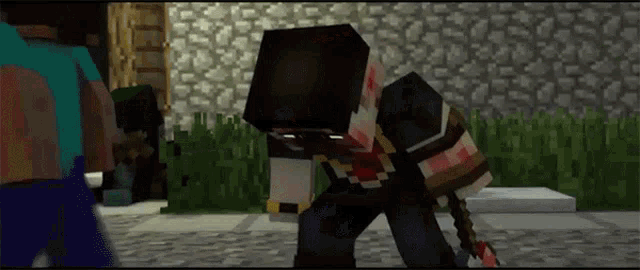Ralph: [00:00:03]
We’re recording! Awesome!
Okay, so I’ll be introducing the topic for this conversation that we: Tabitha Nikolai, DB Amorin and myself, Ralph Pugay, will be having today. Our topic for today is titled Spectacle and illusion. With this topic we’re mainly going to have a conversation about deep fakes, fake news, AI, VR /AR, the metaverse, video games, as they relate to culture and consumer spectacle.
A lot of our conversations today will center around these topics as they relate to the present, but also about reimagining what could happen in the future. And with that, we can have a conversation. So maybe I’ll start out with asking both Tabitha and DB a question around their relationship to these topics. Who would like to start? Maybe we’ll just go ahead in line with who’s on my screen: Tabitha?
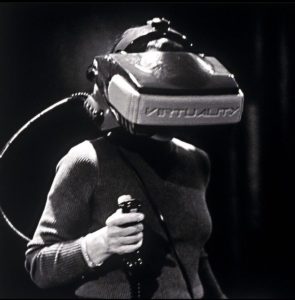
TN [00:01:14]
This reminds me a little bit of the last episode where I think we started talking about games and some of this stuff too and I’ve been thinking about the saturation of image spectacle, and I was trying to find this person to present for this unit but I couldn’t find that thing. And so I found another thing of his that I put in the next episode, but this person’s name is Jaron Lanier and they coined the term virtual reality. One of their many claims to fame. And they have this model that I think is really useful to think about (which was the thing that I was trying to find but couldn’t) where they juxtapose AR and artificial intelligence on one hand and VR as a separate logic or regime of image cultures, and they have a lot of skepticism towards the AI and the AR angle of things. I’m paraphrasing something I heard a long time ago, but what they seem to like about VR is that it maintains the proscenium. It maintains an awareness of the structure, like the proscenium, the stage and the headset…
TN [00:02:45]
In VR you still have to don this thing to go into this figment world, and as somebody who spent a lot of time in game and figment worlds and found that very empowering, I also find myself leery of this moment where, I think of pocket devices and social media and these kinds of things as almost an extension of that augmented reality where all of these things are going to be overlaid and that gets back to the idea of friction and where do we find friction within these systems. So that’s something I’ve been thinking about, what is that imaginative space, versus the imaginative space bleeding into our space and the risks of that, because I think that’s something we’re feeling a lot right now.
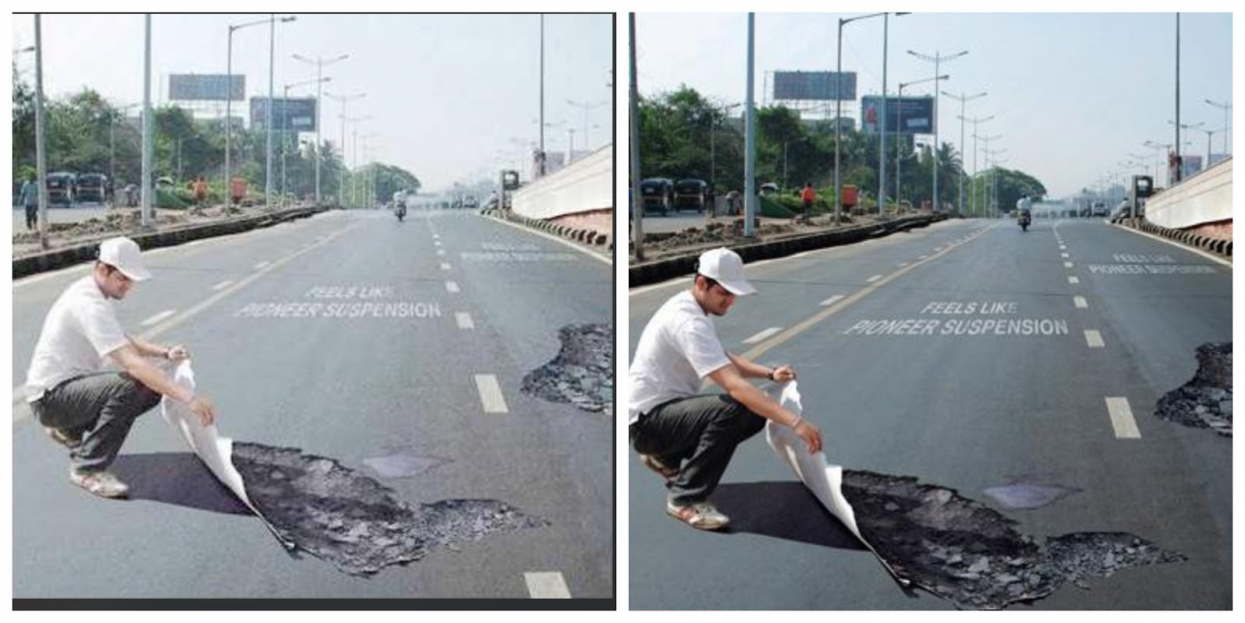
DB [00:03:40]
To piggyback off what you just said, one of the things that kept coming up in the reading was these kinds of…really defining what it means between these spaces and drawing these kinds of borders between fakeness and reality or something that is entered into or something that is immersive, and even talking about centralized or decentralized storytelling and what are the aspects of each of these things that we have to first recognize and then define.
Definitely when I’m thinking about the kinds of spaces that are created, whether they’re virtual or social, the objectives that are defined, or the objectives that have to exist when you enter into a space. And I think that’s definitely part of the awareness that you’re talking about in terms of entering into something. Whereas if something is more frictionless, you don’t necessarily come to it with these preconceived notions of what I aim to do in this space and what I aim to achieve. And that kind of framing of what to do in a space is something that permeated all the readings, but also wasn’t specifically addressed.
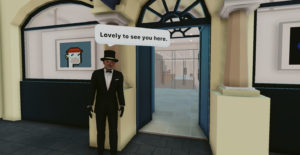
Because when I’m looking at a lot of the text and literature about these technologies that exists and where we’re imagining them or where we’re following them, we’re really focusing on the technical aspects of what it can do for us, and what it can give to us, and what we can take from it. There’s also a lot of conjecture and speculation about the cultures that arise from these places too, but I wonder if that’s such a limiting framework and lends itself to either utopian or dystopian thinking which is so extreme and doesn’t really follow the ways in which real people will use these real spaces. So that’s what I was really thinking about as I was going through these readings in particular. Just trying to maintain that space from getting too caught up in all of the beautiful or horrible things that can occur when we enact these new technologies. I was more thinking about how the spaces themselves operate, who’s building them, and whether or not this idea of a decentralized space, or even decentralized media itself, is even possible, because there’s always an architect and we’re so seldom the architect of the space that we inhabit. So that’s where my mindset was as I was getting through these readings.
RP [00:07:00]

No, it’s really interesting though, where I find the friction really is moving from place to place, right? Or app to app. Even in these conversations we’re using Discord, we’re using Miro, we’re using email, we’re using a transcription app, we’re trying to communicate through these different means. And I think there’s an aspect of it that feels really interesting to me and, even if we’re considering a lot of these new technologies to be …. (laughs) Porkchop, my dog, keeps on snoring really loud… and I’m so sorry.
TN [00:07:45]
Well, that’s friction too!
RP [00:07:47]
I think that there’s an assumption that it’s okay, a lot of these spaces that we enter are gamified spaces, and they’re gamified spaces for capital. Whether that be financial capital or cultural capital or expanding on your social media following or whatever. But the assumption is these things, regardless of whether they’re on a blockchain or not, will continue to feel centralized in a way because Ethereum will always be Ethereum. But at the end of it where the friction happens for me is really in navigating these spaces. Somehow it’s the friction that makes the experience authentic. So despite the fact that all of these technologies are kind of structured in a way where they’re trying to make it as frictionless for you as possible to consume them, to participate in them, it implies that even if you’re playing a video game you’re also participating in a Discord community, and then you’re following the Twitter or whatever. It will continue to have friction in that way, where your agency exists but it’s still within the parameters of using several different platforms in order to make your experience somewhat real. For me, I’m interested in going back to a question that I think DB asked, “how do we make a separation between actual life, and virtual life?”
@kylascanThe Big NFT! #fyp#foryou #ChewyChattyPets #psychology #brain #space #rock♬ INFERNO – Sub Urban & Bella Poarch
It almost feels like the thing that I’m starting to question as schools integrate more technology into the classrooms, as government institutions integrate more of these technologies to make them more accessible, it feels like for me the question is, how do I integrate my life into these spaces so that it feels somewhat less frictionless, given that there’s so much to deal with? And oftentimes that’s the only question that I can ask because mainly a lot of these technologies are also based on trying to make their functionality a lot faster, a lot smoother for everybody, and bring in as many people as possible and get them through systems as fast as possible. Oftentimes there’s not enough room to think about it you’re organizing your thoughts around how to juggle several things on your screen.
TN [00:10:49]
I’m definitely of the camp that these divisions between real life and digital life or virtual life…we’re already past that event horizon where there’s too much bleed back and forth, there’s too much, and we can feel those ramifications, and I think most people probably do, and if they haven’t we’re all going to get doxxed or something eventually and will feel that.(1)
 Ralph, I was interested in one thing that you were saying, I’m wondering if you can clarify a little more. You talked about friction being the point of authenticity for you. I wasn’t quite sure what that meant, but I’m really interested in questions of authenticity, for our topic being about illusion and spectacle and that kind of thing. Because I’m also somebody who’s skeptical about authenticity ever. So, can you speak to that like the relationship between friction and authenticity, I guess, in digital life.
Ralph, I was interested in one thing that you were saying, I’m wondering if you can clarify a little more. You talked about friction being the point of authenticity for you. I wasn’t quite sure what that meant, but I’m really interested in questions of authenticity, for our topic being about illusion and spectacle and that kind of thing. Because I’m also somebody who’s skeptical about authenticity ever. So, can you speak to that like the relationship between friction and authenticity, I guess, in digital life.
RP [00:11:52]
Well, going back to our first conversation I was talking about how being humiliated and trying to figure out how to even use Zoom feels like the most authentic experience, right? In a world where everything is about performativity, and everything is about being able to use these technologies in the best way, in the most optimized way possible, so that you can get to the outcome that these technologies are trying to get you to achieve, It feels like the mishaps of navigating how to do that centers back on the self. Then I start asking questions like, “well, I’m having a really hard time navigating across all of these technologies,” ranging from the Post-it notes on my MacBook Pro to trying to figure out how to get back to an archived conversation on Discord or something, it returns me back to the question of, “why the hell am I doing this?” Then I’m asking a question that is very personal, as opposed to okay how am I going to deliver this thing that I’m participating in. Whereas I started out towards an end goal which is an essence of gamification of all these things.
Does that answer your question? (laughs)
View this post on Instagram
TN [00:13:18]
It moves it forward! I love that, I love the question of, “what am I doing with all of this?” because I think to me that speaks to the spectacle part. I think we have these moments where we’re in the spectacle and disoriented and amazed by the novelty of it. You were talking about the number of platforms and apps and the promises of these things to make our lives better and I get drawn into new technologies for that reason too. And then you have these moments of fatigue with them. They come from slipping and trying to come to grips with them where you kind of step back and say, “oh what, why am I involved in all of this?” Before you kind of catch your breath and have to keep running. Those recognitions feel authentic, in thinking back to authenticity.
RP [00:14:15]
I was just gonna say ultimately I start asking questions that lead back to, “Okay, what am I doing this for?” It starts going into questions around, “Oh, is it for belongingness? Is it for feeling at ease given you’re conforming in this communal space? Is it about feeling part of a more globalized society? Is it for capital? Is it for feeling a sense of aptitude?” So for me, it starts bringing up questions around, “okay what emotions do these things draw out that is compelling to people?”
DB [00:14:52]
I was just going to say that part of that fatigue, maybe, of wanting to step out of these spaces is a recognition of its fakeness, right? We are all participating in this engine and in this constant showcasing of whatever kind of fakeness you want to provide, right? Either from your curated Instagram to an entirely false or embellished avatar, whatever kinds of online digital performances you’re having. It’s draining to an actual human body, and to step out of that is to recognize “timeout, I don’t want to play this game anymore.”
View this post on Instagram
And one of the things I was drawn to, there were a few things, even though the New Models Podcast was ostensibly about fashion and how they’re using the game space to essentially market luxury lifestyle to, quote unquote, normal people. Even though that was the premise of the conversation there were so many things within it that really helped me define what a virtual space is, how it operates in terms of how we engage with it and the ways in which it can either foster or put up blockades to manipulation. One of the parts of the conversation was, they just flippantly mentioned an analysis because they had written a white paper about the fashion industry and its intersection with virtual spaces and they were offering a rhetorical question, “Is it successful? Is the corporate appropriation of game culture successful? Or are we too literate, are we too aware of the fakeness of everything to fall for it?”

And I think that that’s one of the things that I don’t see mentioned when we’re talking about a “post-truth society” and how technology intersects with that and perpetuates that, is this recognition; our fear is that we’re going to be duped, right? Things are going to look so real, feel so real, etc, Or be so confusing that we’re going to fall for it. But I think the more dangerous question is, “do we already consider everything to be fake?” And we take that as its face value. Another one of the readings was the Jonas Bendiksen, the photojournalist who had created an entire document, an entire photo book, showcasing a town in which fake news writers have proliferated. And he had completely manufactured an entire book of documentary photographs, expecting it to be called out immediately. And it never was, not by industry insiders, not by the media, not by reviewers, nobody either knew or I guess — that’s my issue — did they care? Does anybody care about how fake anything is and how we interact with it? Or do we just take that as if an idea can be posited or it can be delivered, do we just go with that?(2)
TN [00:18:43]
Yeah, I’m thinking about that. That’s super fascinating. We’re going to increasingly  be in the midst of this fakery and these AI-enhanced images or video performances of people, or, deepfaked geographies and that kind of thing to help fake news, or to advance political agendas. And I think there’s certainly the concern of being duped, and like you’re saying, DB, the jadedness towards it all. We’ve become in this position of just choosing which fake version of the world that you want to live in. And then, what does that mean for the persistence of ideology because I think it also habituates us again to that novelty and wanting to withdraw into something that feels real. Do we just end up being in this withdrawing series of moving ideologies when we’re tired of the drama of being a flat-earther, do we fall into another thing, and another thing and we can maintain no kind of fixed waypoint for what we think. And then how is that instrumentalized? Because I think that is instrumentalized already.
be in the midst of this fakery and these AI-enhanced images or video performances of people, or, deepfaked geographies and that kind of thing to help fake news, or to advance political agendas. And I think there’s certainly the concern of being duped, and like you’re saying, DB, the jadedness towards it all. We’ve become in this position of just choosing which fake version of the world that you want to live in. And then, what does that mean for the persistence of ideology because I think it also habituates us again to that novelty and wanting to withdraw into something that feels real. Do we just end up being in this withdrawing series of moving ideologies when we’re tired of the drama of being a flat-earther, do we fall into another thing, and another thing and we can maintain no kind of fixed waypoint for what we think. And then how is that instrumentalized? Because I think that is instrumentalized already.
@deeptomcruiseI love magic!♬ original sound – Tom
RP [00:20:07]
What is instrumentalized? Giving in to the hype?
TN [00:20:11]
I don’t think of it in terms of giving in to hype, but disorientation is instrumentalized. I don’t know if I can cite it, but there’s the Russian fake news guy, Putin’s assistant, who came from a background in postmodern theater and that kind of thing. And so one thing they do is fund all of these different movements including movements which counter one another, both radical left and radical right movements. So you can’t really know, and so you’re left to choose. But in that disorientation I wonder if there’s a further kind of dynamo that gets hooked up about people moving and migrating from one fake thing to another that they want to believe in. Which appeals to me, I mean when you were talking about the game podcast I’m thinking back to the game that we presented as one of the texts for this, “Agony of a dying MMO” and so there, some people migrating — this is a fucked up way to say this, but — a forced migration. When one world is shut down and the kind of apocalyptic thinking that happens from that. Those people have to move into whatever reality they do next, and in the course of that text it’s powerfully negative, as people are forced to come to grips with those gaps between reality or the new fakeness that they have to accept when they leave.

RP [00:21:49]
Right, it’s really interesting because it seems like there’s all these new metaverses or universes that are emerging at the moment. And it seems like the way that they’re being developed, from what I understand, is that they are aware of the fact that we’re just creating these universes, or metaverses, the idea is that you can skip from metaverse to metaverse, or something like that. And I find that to be really interesting in that this is what is implied in decentralization. Okay you can hop from place to place, and nothing is permanent. And people will get swept away by the next big thing or whatever. I can imagine that is alluring for those people that find nomadism to be alluring, that’s kind of a given in the space. But it’s very dizzying. It feels like a psychedelic journey. Because some of it can also feel very undesirable to experience. Like what they said in the podcast, there are ways that these things aren’t really pleasurable to do and yet we do them anyway. We participate in them anyway, it does feel very much like a trip. (pauses, laughing) I don’t really know what else to say to that, but I started thinking about that in relation to accountability. But also what does it mean to stay in one place, what does it mean to keep migrating, and for example, right now there’s a lot of scams that are happening in the blockchain space, right? A lot of things that are being pulled out in terms of cryptocurrencies or people getting scammed online, given that it’s a new space. And it feels like in these spaces having a good reputation seems really important. But I find that to be really problematic too. I guess I’m having issues with what does it mean to be accountable in this space, given that these technologies become obsolete, so fast?
in that this is what is implied in decentralization. Okay you can hop from place to place, and nothing is permanent. And people will get swept away by the next big thing or whatever. I can imagine that is alluring for those people that find nomadism to be alluring, that’s kind of a given in the space. But it’s very dizzying. It feels like a psychedelic journey. Because some of it can also feel very undesirable to experience. Like what they said in the podcast, there are ways that these things aren’t really pleasurable to do and yet we do them anyway. We participate in them anyway, it does feel very much like a trip. (pauses, laughing) I don’t really know what else to say to that, but I started thinking about that in relation to accountability. But also what does it mean to stay in one place, what does it mean to keep migrating, and for example, right now there’s a lot of scams that are happening in the blockchain space, right? A lot of things that are being pulled out in terms of cryptocurrencies or people getting scammed online, given that it’s a new space. And it feels like in these spaces having a good reputation seems really important. But I find that to be really problematic too. I guess I’m having issues with what does it mean to be accountable in this space, given that these technologies become obsolete, so fast?
DB [00:24:41]
This idea of portability between different decentralized zones of interest. I don’t know what else to call them? Is it a new digital kind of geography? Whether we’re talking about different blockchains or different metaverses, that’s one of the things that sticks out to me in terms of a decentralized future. However, I’m also wondering, we’re positioning this conversation or these ideas, we’re moving into this new world that is so fractured that there will never be a consensus reality again maybe? That’s one of the themes, right? And maybe that hinges upon this fantasy that there was ever a consensus reality? This fracturing is just aided by technology but it didn’t create it, if that makes any sense. I’m just thinking about the ways in which we’re hoping that decentralization will empower people because it gives them the ability to choose an identity, a community, and environment, and have that choice, but this idea of choice that everything in your life, including this immersive, not only my physical life, but my immersive digital life, can be 100% tailored to my own desires is also a problematic situation, right? Because we’re moving further and further away from randomness. That’s maybe a byproduct of the algorithm and the advent of the algorithm that was designed to market your own whims to you. And it’s kind of shifted the way that we think that not only do we get the products that we want, but our entire existence is centered around that.

TN [00:26:57]
You’re making me think about those things existing in the context of individualism as well. The idea that we have freedom of choice from among all of these other things but those numbers of choices don’t necessarily key to happiness. Capitalist individualism says you should have all of these choices, but I think our brains are kind of limited to how many we can select from among and then more than that creates, I think what Ralph is talking about in terms of friction, or maybe a negative sense of friction in analysis paralysis. Just trying to say, “what does my desire want,” and the moving through of one’s desire from all of these different things one could desire is part of what powers the whole thing. This fantasy that choice is inherently better. I mean, obviously a certain amount of choice is, but…
RP [00:27:50]
The thing that I start thinking about, in response to what you all are saying is, how is the nature of choice being shifted in these types of environments? Because you’re given an infinite amount of choices with the things that you can participate with, but because they’re social spaces and platforms it oftentimes feels like because I’m tied to society, all of a sudden it doesn’t feel like a tool anymore. It starts feeling like I’m integrated into the environment, I am just a cellular structure within these environments. And so I start asking questions around the nature of choice and also the nature of choosing to participate in making that choice. How is my desire being manipulated? What is it that I’m actually desiring that compels me to be in the space? Is it alienation? Is it feelings like, if I don’t do it then I might not survive, maybe a year from now or two years from now or three years from now? So a lot of these promises of choice, also implies feelings of fear.
TN [00:29:40]
I wonder too, to land on the metaverse thing… and to maybe… I think our unofficial… DB, can you recap what is our unofficial subtitle for this project?
DB [00:29:54]
Oh (laughs) “Millennials attempt to wrap their heads around Gen Z culture and technology.”
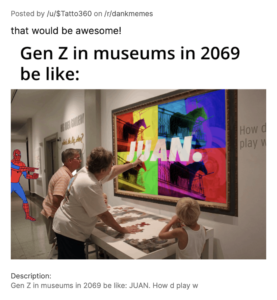
TN [00:30:05]
Yeah (laughs) I’m thinking about that. And I’m wondering about metaverses and I’m wondering, are any of us particularly excited in metaverses, do we see ourselves spending time there? One thing that came up in the game podcast too was, “who has time to game” in that sense? I think we’re all gaming and we’re all gamified, as Ralph was pointing to, in these systems. We’re instrumentalized in this game. But is getting into a metaverse or metaverse on a blockchain does that hold any allure for either of you or is it repellent, and why?
(DB and Ralph cross-talk)
DB [00:30:49]
What were you going to say? I feel like we have the same answer. You give yours.
Only so that I can find a home somewhere once the climate crisis gets really bad.
Because given what I’m seeing in these emerging technologies it seems like what it’s trying to promote really is like…I’m sure that will also go into ethics at some point in this conversation…
TN [00:31:17]
I think we are, already.
RP [00:31:18]
What it’s really promoting is basically, ”Oh, anyone can say anything, anyone can participate however they want to.” And I think that really allures bad actors in the spaces, right? Because they’re given the opportunities to act out however they need to. Which makes these spaces scary. But regardless, it’s feeling like you might have access to this thing, which might be the only place of salvation as the climate crisis ramps up among other crises. It’s not so much that I’m excited about it. My feelings about it are more motivated by concerns that I have about where the future is going.
TN [00:03:15]
Can I get clarification? I do want to hear DB’s answer, but I am not sure I understand why participating in a metaverse gives you a home when the climate crisis takes your home away from you. Are you uploading your consciousness? Have we officially arrived to The Ghost In The Machine territory? (3)
RP [00:32:32]
I’m sorry, I am assuming that people are in my brain all the time. So I’m assuming in the future, if global warming really heats things up, then we will just be located inside of pods that are air conditioned, and we are just going to tap into getting fast food through the metaverse like ordering…You have that look on your face, like, “oh…okay….” (laughing)
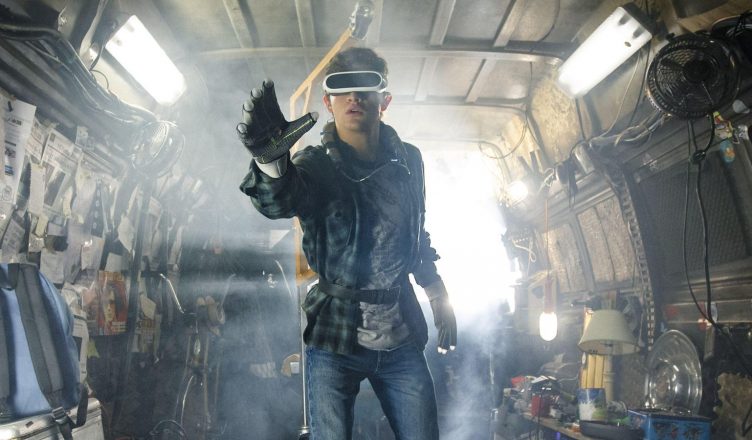
But I’m just driven by my own paranoia that the only reason why land on the metaverse is expensive is because of the fact that people that have access to information that I don’t actually do feel like it’s going to be the place where people will be in the future. So there’s an implied hidden marketing tactic where these rich people are investing in this space. Well what do they know that I don’t know? It seems like there’s a way in which that kind of thinking is being taken advantage of by marketers.
TN [00:34:02]
Yeah. It sounds like the matrix, it’s just rich people instead of robots. That’s what I’m envisioning.
RP [00:34:08]
And that coincides with colonizing Mars and all of that.
DB [00:34:11]
I think, even in my most dystopian view of the future, in terms of cinematic… (laughs) I was landing on Ready Player One, but he went right to Matrix level. I could see maybe that’s where like 60% of my interest lies, and I can’t see myself, particularly being excited, or even existing in a metaverse. However I just did order an Oculus so we’re going to ease myself..
RP [00:34:48]
I just got one! (laughs)
DB [00:34:49]
Oh, for real? I just got one two days ago and I have no business being there but we’re going to try to figure it out. I just completely divested myself. As a child I used to be really into video games and around the age of 12 I just could no longer. There was some kind of fissure where I couldn’t exist in that virtual space anymore. However I understand that it is a site of cultural production just like anywhere else, and as an artist, as a digital-adjacent or digital artist that’s the other 40%. it’s a technical skill that I would like to develop and understand and not have to ask myself, how do millennials navigate this space? So that’s my interest in it. One of the things that I keep coming back to when going through the readings was a lot of the quote unquote “positive” use cases for VR seemed a little utopian? Actually no, I’m sorry, it  was particularly the deepfakes. Useful deep fakery relied on us all recognizing and internalizing the “authentic fakeness.” We understand it, so it can no longer hurt us because we understand that things can be fake, anything that you encounter can be fake, and we have a built-in defense to that, once, as a global population, we can understand that, achieve that and move on from that, then it will be able to provide you know x, y & z benefits for us. But one of the things that did stick out to me in terms of the possible positive uses was the game that was outlined in the “Can virtual reality save the planet” reading which gamified possible group development of solutions for climate change, and the gamification of that. Not so much that it’s an innovative way to get people to collaborate and create tangible solutions for climate change, but it did gamify the success of the community rather than the success of the individual. And I think that’s an aspect of these virtual spaces that maybe aren’t so prevalent and aren’t so at the forefront of the way that these things are built, and the objectives that are defined within games. But that’s coming from somebody who’s, again, not a gamer, and I don’t navigate these spaces often, or at all. I just see a lot of the negative aspects of social media, whether or not, it’s 2d or 3d. The negative aspects are always in the poison individual, right, like looking out for themselves or otherwise causing chaos within a system and doing so for the negative benefit of society.
was particularly the deepfakes. Useful deep fakery relied on us all recognizing and internalizing the “authentic fakeness.” We understand it, so it can no longer hurt us because we understand that things can be fake, anything that you encounter can be fake, and we have a built-in defense to that, once, as a global population, we can understand that, achieve that and move on from that, then it will be able to provide you know x, y & z benefits for us. But one of the things that did stick out to me in terms of the possible positive uses was the game that was outlined in the “Can virtual reality save the planet” reading which gamified possible group development of solutions for climate change, and the gamification of that. Not so much that it’s an innovative way to get people to collaborate and create tangible solutions for climate change, but it did gamify the success of the community rather than the success of the individual. And I think that’s an aspect of these virtual spaces that maybe aren’t so prevalent and aren’t so at the forefront of the way that these things are built, and the objectives that are defined within games. But that’s coming from somebody who’s, again, not a gamer, and I don’t navigate these spaces often, or at all. I just see a lot of the negative aspects of social media, whether or not, it’s 2d or 3d. The negative aspects are always in the poison individual, right, like looking out for themselves or otherwise causing chaos within a system and doing so for the negative benefit of society.
TN [00:38:42]
I feel like the idea that it’s the individual that causes problems in social media ignores the mob mentality. It ignores that social media does, in a way, do its job in that it connects a lot of people to do things. I think there’s both pushback on individualism and all of this marketing and choice and I’m expressing “I / me / mine.” But I think there’s also a critique of collectivism in that people want to be part of this cohesive entity that is not immune from doing gnarly things. And I’m processing too some of what you’re saying about the virtual reality, that ecological virtual reality and it’s tricky… That article on that game was in a pitch mode, where the game doesn’t exist yet. So I’ll be curious to hear. I really admire that that person is trying to use that technology to do something like that. I wonder about what is the overlap between people that are extremely ecologically conscious and want to pursue ecological
solutions to help the planet, and also want to spend a lot of time in virtual reality to do all those things together? Maybe it’s weird that I’m asking this because I am a technologically-inclined artist as well, and subject to all the novelty of that, I find myself wondering why do we need a VR game to help us gamify fixing the planet? Is climate change not gamifying it enough for us? Is it not saying, “oh, how many people will die? What percentage of Celsius increase….” etc. if we can do that. I guess that’s just part of the human condition that we want this reductive or seemingly safe. Is it because we can go in there and so it feels mediated, so it’s safe to work on these things? Whereas it feels overly complex and unsafe to work on them outside? What does that desire for insulation mean? I don’t know and maybe that’s not the operative desire for people who play that game, and again, it’s hard because it’s a totally conjectural game that feels like it was probably designed to raise money for some other project of that studio’s, but I don’t know.
@michaelarmstrong444
When we’re not afraid of death is when we can truly live #repost #supernatural #oprahwinfrey #eckharttolle
♬ original sound – Michael Armstrong
RP [00:41:14]
Gamification of intense topics like the climate crisis feels…I feel like the way that they’re mobilizing, the way that they’re strategizing around is that games, given that they can be disarming and that they’re cute, you can make them feel somewhat clunky given the limited amount of things that you can do in them, but also having the distance of the screen allows people to maybe feel disarmed in embodying a lot of the knowledge that could be drawn out from a game like that. But I’m with you, there’s a part of me that’s not convinced that people will actually play this game because it’s when I look at social media, for example, and how toxic it can be, particularly TikTok in the comments section, it feels like how racist these MMO games can be. It feels like people are actually going into these places not to figure out the right thing to do, but really decompress and let out whatever it is that they’re suppressing deep inside. And I think in that article they mentioned museums or creating exhibits, or these types of educational gamified projects, but it does feel like In order for that to actually be an effective thing to do, the person that is consuming it has to be aware of their own agency as a human being to actually do the right thing, which most people…..(laughs) I’m sorry to say, but, a lot of people that are immersed in games maybe are not competent at, or maybe it’s not what they’re looking for? I don’t know, that prevents me from feeling like this is like the right way to go about it.

DB [00:43:28]
I think that one of the reasons why, say, the comments section is such a cesspool… I guess what I’m drawn to in that article is the idea that the infrastructure of what we’re building matters to the use of that space. So the comments section is such a cesspool, and I’m not certain that it’s because people inherently want to get out the worst thoughts and desires, but it’s that we built an infrastructure that has an

attention economy. The worst comments are going to get the most reactions. But then the opposite of that is true as well, like how many completely empty lifestyle posts with… memes that say nothing but elicit a good feeling, how those rise to the top in terms of likes, reactions, that sort of thing. And how this economy that is building the infrastructure around that economy is built to elicit those kinds of spectacular emotion, right? I was just drawn to, of all the use cases where we’re focusing on, “well this tech will allow us to, you know, x y and z.” And of course the pitch was pretty wide ranging, but if we’re assuming that it is correct that engaging knowledge acquisition with virtual tools works. Like actually having a hands-on approach to learning, they mentioned how to build and maintain a solar cell. Providing a digital access point definitely gets more people involved because otherwise what’s the real world access point to that? I don’t know, some six week class that you have to take in some other state or something? If I was thinking of how would I want to learn that I’d probably fly back to Oregon, and so I’m just saying it provides an access point for people who maybe are interested in that and come to the table with the idea that the infrastructure of a place that I’m gonna engage and spend my time in should think about the collective rather than the individual, and isn’t built on an attention economy that perpetuates any kind of salacious element of my personality, whether it’s good, bad or, toxic.
TN [00:46:28]
I love that. I love that you’re pointing to that DB. I really appreciate that around the infrastructure. I want to bracket off what is the educational potential of that technology, which I think you lay out really nicely there, separate from the gamified potential of it. To me that’s where I feel like it goes a little bit wrong, and the idea of having those experiences, whether in a museum or a pre-existing educational setting seems important, because I feel like there’s so much of the hype around VR… I feel like we’ve gone through a wave and we’re well at the trough of a wave of interest around VR. Maybe it will come back up around Facebook and their metaverse situation. Maybe that’ll draw people in, I don’t know. I’ve kind of been a little bit out of this space for a while so maybe I shouldn’t be saying… Where the fuck was I going with this? Part of the hype around all of that hinges on who is going to have headsets. You two, it sounds like are just now buying your first VR headset, but for the vast majority of people won’t have headsets that can, or they won’t have computers that can run it, so where are these kinds of experiences going? And the way I can see what you described as an educational experience DB Is it still needs some degree of, if not full on centralization, some degree, to have people there, come to a thing and then presumably also steward it towards something physical. if the point is that there’s a physical output from that input of time and energy within this experience building a solar cell or whatever, how can we ensure that there’s an output and it’s not just like okay “I built this solar cell once in this thing,” And who are the entities that are going to do that? And I’m not convinced it’s Steam, or whatever platform might be distributing it as a game-game. I don’t know, but I guess that also highlights the need from the decentralized storytelling articles of the other entities, the other things that are going to pass that off. Maybe it doesn’t need to be a central entity. I just don’t know that we yet know what a responsible set of decentralized entities are that would handle that. Does that make sense?
RP [00:48:46]
By that you mean, who’s going to govern how we construct ethics around these things?
TN [00:48:56]
Yeah, and completing the ecosystem. By completing the ecosystem I mean the… I’m really fixated on DB’s model about building a solar array. So who are you going to go to that has that stuff? Who you’re going to go to to get in touch with solar supply chains or that extra community of information around that. If it’s decentralized that seems like it has to be a lot of different people, versus just one entity or it has to be one entity versus a kind of tossed off experience. And I guess that’s my complaint and I’m a jaded person about some of these things, these apps, that get thrown out there, it feels like it’s thrown out there. But then, does it get picked up and again it will be interesting to see with this particular VR app. Maybe it does? I don’t know.
DB [00:49:57]
I think there was a good portion of the New Models podcast where they mentioned this fallacy of trying to identify who is and who isn’t a gamer, right? It’s the equivalent of saying who is and who isn’t a TV user for the Boomer generation. I think that we are in such the advent of the technology that just the act of us trying to create a timeline or a through-line of where these technologies go and what material, where they end up, maybe in 5 to 10 years will seem almost futile or something where these kinds of questions will just be answered by how the tech proliferates. However, I am saying this with the caveat that almost every single piece of literature I have read about any of this tech comes with a grain of salt because it hinges upon this idea that tech will save us. And I just don’t sign on to that necessarily, but I can see the seeds of maybe this is one of many entry points that shift thinking around what we put our labor into, the spaces that we occupy, and how we have agency within those spaces to build more sustainable futures for ourselves.
RP [00:51:53]
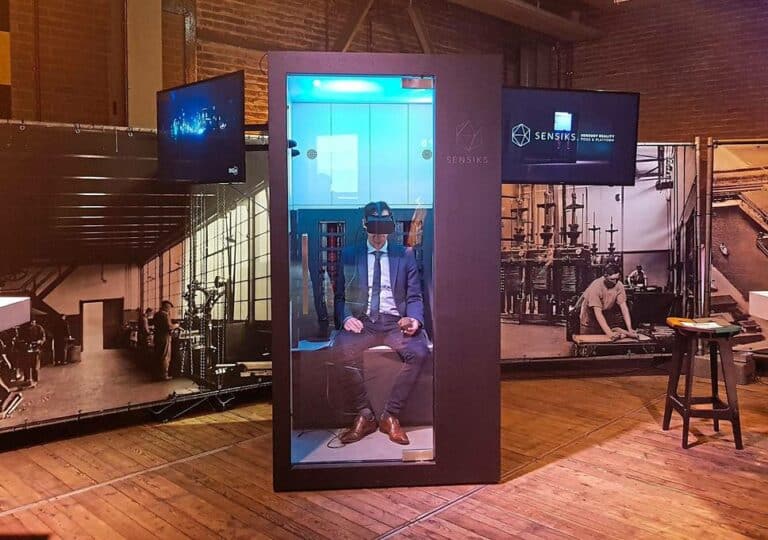
I might need to take a little quick break in a moment to use the bathroom because I gulped so much coffee. Maybe we need to take a pause in a little bit, but I started thinking about that in relationship to somatic embodiment of these things. How it requires a lot of stillness on the part of a participant. Maybe not in virtual reality, maybe that will be different, but regardless, in virtual reality your space is still limited to a certain part of a room, or a space or something like that. But I started thinking about that in relation to agency and freedom and what does it mean to have agency while your body feels tired and achy because you’ve been sitting somewhere for a really long time without any exercise? Even if a project is trying to mobilize towards action, but your body is not really registering that action, what does that mean in terms of a holistic way of defining those things?
TN [00:53:15]
I guess, DB, have you had experiences… I think there’s the educational component of VR that I think you’re making a great case for, and then there’s the way that VR gets hyped a lot as empathy machine, and a way to have a form of embodiment outside of one’s own subjectivity. Have you had experiences in VR, and maybe we can broaden out to other gaming experiences, if not, where you felt like you succeeded and growing empathy?
DB [00:53:50]
Well my personal experience with VR is so limited and that’s one of the reasons why I just went off and bought this Oculus, which I guess I have to make a Facebook
 account for, which is horrifying. But no, I feel like me picking up on that one portion of that one article was just a glimmer that there does lie a possibility, and not even the material aspect of what they were describing. More so, just the acknowledgement that studies have shown that virtual medicine, for example, teaching surgery, or virtual surgery, and that kind of thing. I can see that that could provide an access point for people to learn skill sets that benefit the whole.
account for, which is horrifying. But no, I feel like me picking up on that one portion of that one article was just a glimmer that there does lie a possibility, and not even the material aspect of what they were describing. More so, just the acknowledgement that studies have shown that virtual medicine, for example, teaching surgery, or virtual surgery, and that kind of thing. I can see that that could provide an access point for people to learn skill sets that benefit the whole.
TN [00:54:56]
Yeah, and I’m not even trying to pin you down as the evangelist in this conversation. Witch hunt! Witch hunt! Who’s the evangelist in this conversation! I just wonder about that because I want to believe, because I can think of a few times when gaming spaces in general have been given a lot of compassion or empathy. It’s still been in collective experiences. There’s a moment at the end of “Agony of a Dying MMO” where they’re following this squad of Neo-Nazi’s, weirdly, flying in their helicopters on this final raid or whatever, and you’re hearing through that disgusting facade that they have, it’s a bunch of bros being able to tell each other they love each other because they’re in this other mediated space that let’s them do these things. And so I think there really is potential for human connection amidst these gamified spaces  but when I’ve experienced things like that, being bros playing Dungeons and Dragons in a basement together, being able to find that kind of connection through this weird mediation of violence, It’s still had the people around it. And so I’m leery, and I guess maybe that’s the case for the metaverse is, “no you got to still get all the people together,” and maybe they can do that, and so I’m just now surveying because there are so few people with any experience in VR; are there experiences people have had that they felt empathy or connection or some squishy human emotion that’s not just learning to make a solar cell, which would be great, but where is the humanness in that stuff?
but when I’ve experienced things like that, being bros playing Dungeons and Dragons in a basement together, being able to find that kind of connection through this weird mediation of violence, It’s still had the people around it. And so I’m leery, and I guess maybe that’s the case for the metaverse is, “no you got to still get all the people together,” and maybe they can do that, and so I’m just now surveying because there are so few people with any experience in VR; are there experiences people have had that they felt empathy or connection or some squishy human emotion that’s not just learning to make a solar cell, which would be great, but where is the humanness in that stuff?
DB [00:56:43]
I was just gonna say one of the things I felt was implied in that article was the communal aspect of learning together and building, which I guess is just one of the ways, if we’re talking about the ways in which decentralized storytelling and all these different factions like multi-chain, multiverses can form, and you know you’re speaking of swirling, moving it into yourself more, and more retreating from any kind of what could be called society. That is one of the ways of thinking about who is the architect of these spaces, and what is the objective when we enter into them? Rather than creating a space that thrives on Trump fan fiction or whatever, and then results in its own spectacle like the January 6th attack. Also, when you’re saying about deep empathy, or I’m sorry, the empathy machine, one of the examples of that given in one of the positive uses of deepfakes was AI that learns the visual impact of war torn cities, and then superimposes it on to your own city, so that you can feel the terror of war, so you have more empathy towards what? Like what? I don’t know, I had no words for that.
TN [00:58:32]
And they were terrible, and it was completely unconvincing. It looked like a weird deep dream picture but, yeah.
RP [00:58:42]
I think that’s where I start thinking about the mishaps of how you interact with these technologies is the point of where the empathy machine starts becoming most successful because I think a lot of the ways that these technologies deploy trying to convince people to be empathetic, is through either making something really cute, like pixelated cute animals, or through creating really highly defined types of immersive spaces. It reminds me of what the Nazis were promoting us like good art during World War II. Like, oh, we’re gonna convince you that this thing is real by trying to show you that this thing is visually real that you can almost feel the texture of the thing.
So that’s where I start holding reservations, but at the same time, yeah, okay show me the fur on these jumping puppies, like, yeah, I’ll be convinced that they’re cute. Sure.
TN [01:00:07]
And I wonder how much some of that is about empathy or about an appeal or a veneer. I don’t have words around it…
RP [01:00:15]
Propaganda?
TN [01:00:17]
Yeah, totally propaganda for sure. And I think those criticisms of graphic fidelity are hugely leveled at the triple-A gaming space of this endless pursuit of realism, but how many Call of Duty’s do you need that are just more and more realistic versions of killing brown people? (4)
Yeah, it’s very empty.
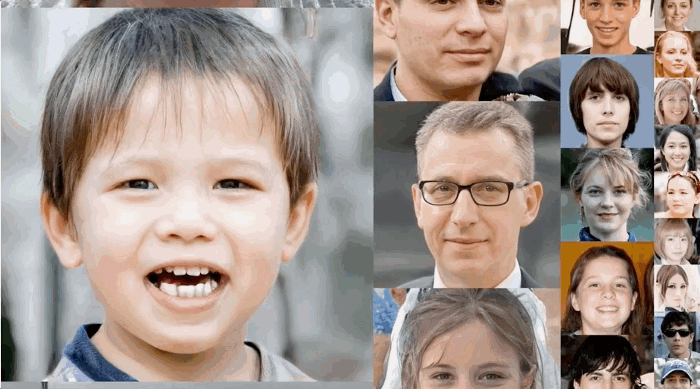
RP [01:00:47]
But the reality is it seems like there’s this world out there where that emptiness is the next best thing or it’s what is being pushed as being real. And so it just feels like either we participate in it, or hope that it will evolve into something else that feels really real and imaginative. I really don’t know. it’s really interesting because on the one hand, I kind of get it, we’re trying to figure out ways to convince people, but unless you get around the trauma that is embedded in deploying these highly defined mechanisms as the thing that makes something real… I’m trying to figure out how to word that better. I’m getting ahead of myself. I feel like through the deployment of these things it’s rooted in the development of atrocities that have happened in the past, right? So we keep on moving forward trying to create these new technologies that are supposed to connect us, but at the same time feels alienating, and feels like it’s encroaching upon our liberties. But what doesn’t get solved is how do we create accountability for these things so we’re able to create platforms for other people that might have been oppressed in the past, or in the current moment to be able to either participate or not participate, but regardless have agency as part of a larger collective. I’m imagining that things will just continue to keep on getting faster, and things will continue to keep on getting gamified, and that the nature of empathy will continue to be aestheticized for capital.
@itspusher
would you get a computer chip in your brain? ##neuroethics ##anarchy ##socialism ##communism ##tech ##ethics ##morality
TN [01:03:16]
I think one takeaway I’m feeling from this conversation, especially from a lot of what you’re saying there, Ralph, and I’m hearing that back in your vision of why you want to get into the metaverse, that so much of this drive towards and into spectacle and into these virtual spaces is because the world is being made fucked up, and people are retreating into it. And that gels with a lot of what I know, and a lot of other people that I know who are real gamers, partly because I think their opportunity for meaningful engagement in the physical world is often very foreclosed. And so really tracking that, it’s not only that capital is in a lot of ways fucking up the planet, It’s also trying to capture us as we’re fleeing the planet into these pocket spaces. And I think DB talks to a lot of the hopeful element of, Ralph, what you’re describing and how can we make these technologies truly distributed? How can we be sure that access to creating these spaces, these next sort of worlds is not just wrapped up in the same kind of powers that be? And it’s hard, i don’t know, i feel like when we first started talking about this project I was trying to pound research about economics, because I don’t know anything about economics, and that just feels so much like the end game to me. When I’m reading about, DB, that person’s virtual world of ecology and caring for the planet and they’re like, “it’s on the blockchain,” I’m like, how does any of this pay for itself? How does it? Because that’s what matters at the end of the day because if Facebook can scoop up Oculus or Amazon can buy Twitch, even if those seemingly begin as distributed platforms then what does it matter? or what is a model outside of that?
RP [01:05:21]
Right. It almost feels as if society, given where we are, still has a really difficult time trying to figure out how to separate readability versus embodiment. So something can be readable, legible, consumable, but if you’re not able to convince somebody that thing is actually real and they’re always aware that this thing is fake, and it’s up to me to imagine that this thing is real, deep inside you’re still going to operate as if this thing is fake right?
TN [01:06:03]
Can you anchor that in a thing? Can you say in a specific instance what is a thing that happens with?
RP [01:06:13]
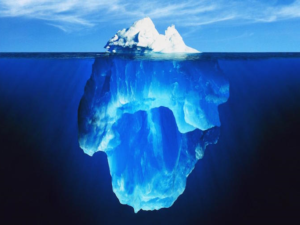
Right so If there was a technology that’s telling me that the environment is going to shit, but I’m not actually feeling that because I have purchase power in terms of ignoring the fact that the world is going to shit, then there’s not going to be an embodiment there. I can say, yeah the environment is going to shit but what am I going to do about it if I don’t really embody what is going on, right? So I think that there’s a weird friction that’s happening between those two things in these technologies and what they’ve been able to continually figure out is mobilized towards making these things more legible. But they haven’t figured out the mechanisms to allow them to be embodied, and I feel like those things can only be embodied by creating real human experiences as you were saying. But I don’t think that those things will happen unless the people that are in those spaces feel like what they’re doing is real. If I was a gamer and I was playing this game, and I was saying, “I’m playing this game because the world is going to shit. And I feel disempowered. I feel disempowered to do anything to help solve the crises.” Without acknowledging the idea that I’m doing this because I feel disempowered. Nothing. it doesn’t feel like anything will be embodied, so I think that lack of introspection is maybe the thing that drives a lot of these technologies, and unfortunately we haven’t figured out how to help people do that.
TN [01:08:17]
Lack of introspection puts it on the individual. It’s addictive and it’s behaviorist. I want to come back to the fact that the technologies are trying to remove introspection. But I’m talking over DB…DB?
DB [01:08:29]
I was just gonna say, I think what I’m hearing is coming back to what you said in the beginning, Ralph. The presence of friction makes something feel more real and more often authentic. And I think the development of all these spaces, in the desire to be frictionless, is creating a space, creating an objective within that space, and then you’re creating an infrastructure that makes that the most efficient. And that kind of construct, whether or not it’s this metaverse, or this metaverse, or this metaverse, and the idea that you can choose to go to each of these places for whatever benefit that you’re aiming for, whether I go to this virtual space to find a partner and for sex, and I go into this place to play games with my friends and turn my brain off, or I go to this space to learn how to build a solar cell. The idea that this virtual realm is fostering and supporting agency doesn’t necessarily factor in the messiness of that. There’s a lot of noise and there’s a lot of messiness and there’s a lot of friction in spaces that organically create community and organically create experiences that drive empathy. You can’t just build a theme park ride that shows what a war torn city looks like and then expect a result at the end, a change of the hearts of the people. Even what you described, Tabitha, about just the camaraderie of going through a game as something as simple as that, and the authentic experience of that is what resonates and is what teaches people something. So I think just to cycle it back around, factoring in a degree of friction is maybe what will save these technologies from themselves.
RP [01:10:49]
I hope so.
(All laugh)
DB [01:10:51]
Or not.
Featured Readings:
Gamestart
Lucas Mascatello, Richard Turley & Thom Bettridge
New Models Podcast, Ep. 37
Jun. 1 2021
Podcast: 01:10:54
https://soundcloud.com/newmodels/ep-37-gamestart-bettridge-mascatello-turley
Inside the strange new world of being a deepfake actor
Karen Hao
MIT Technology Review
Oct. 9 2020
https://www.technologyreview.com/2020/10/09/1009850/ai-deepfake-acting/
Can Virtual Reality Save the Planet?
Kristen French
State of the Planet, Columbia Climate School
Aug. 18 2021
https://news.climate.columbia.edu/2021/08/18/can-virtual-reality-save-the-planet/
Agony Of A Dying MMO
Salem Hughes
Mar. 25 2021
https://salem-hughes.itch.io/agony-of-a-dying-mmo
How the Metaverse Will Pull Us Further Apart
Amar D. Peterman
Sojourners Magazine
Nov. 15 2021
https://sojo.net/articles/how-metaverse-will-pull-us-further-apart
Before Everyone Was Talking About Decentralization, Decentralization Was Talking to Everyone
Amelia Winger-Bearskin
Immerse: MIT OpenDocLab
Jul. 2, 2018
https://immerse.news/decentralized-storytelling-d8450490b3ee
Positive Use Cases of Synthetic Media (aka Deepfakes)
Ashish Jaiman
Towards Data Science
Aug 14, 2020
https://towardsdatascience.com/positive-use-cases-of-deepfakes-49f510056387
Black Meme
Legacy Russell
Discrit ATL
Jul. 21 2020
Video: 01:36:11
https://www.youtube.com/watch?v=7zWBPVUmhR0
The health concerns that hang over the metaverse
Alexandra S. Levine
Politico
Nov. 17 2021
https://www.politico.com/newsletters/future-pulse/2021/11/17/the-health-concerns-that-hang-over-the-metaverse-798937
- Tabi: What I’m meaning to say here is, I think we’re past the point of a division between virtual and physical life being any more or less “real.”
- Tabi: I struggle hard with this aspect of truth/authenticity, because these same arguments are used against trans people, as in, “I should believe you’re a woman just because you say you are? And people are just going to indulge you?!” and I basically fall into this trap as I keep talking here. Ugh.
- Tabitha is a fake weeb and meant Ghost in the Shell.
- 0
